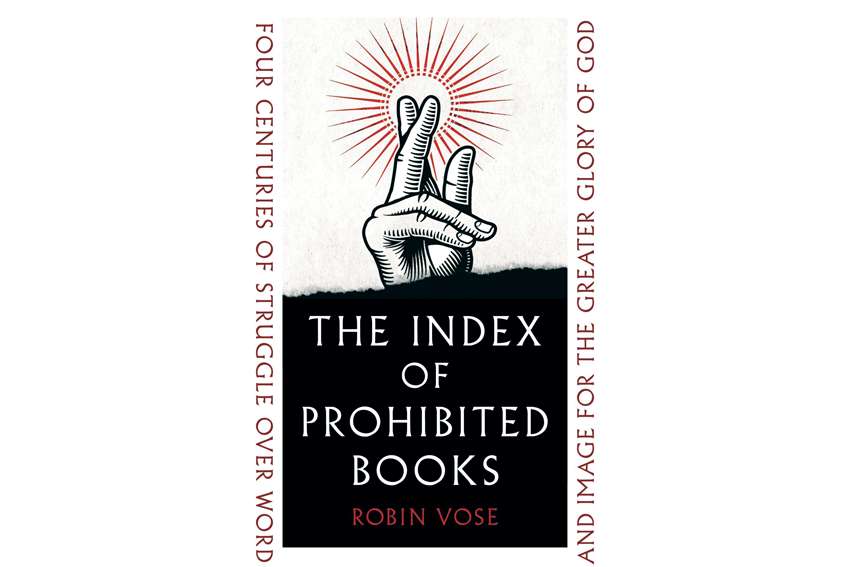Vose, who teaches history courses at this postsecondary institution, unveiled The Index of Prohibited Books: Four Centuries of Struggle over Word and Image for the Greater Glory of God at the Fredericton, N.B., school Dec. 9.
Entire works from more than 550 authors were completely blacklisted by the Index, which was instituted in 1559 and underwent revisions through the centuries up until the last edition was unveiled in 1948. Pope Paul VI formally abolished this catalogue on June 14, 1966, just over six months after the conclusion of Vatican II.
Both religious and secular texts were subject to the congregation’s scrutiny. There was a particular vested interest in countering the Protestant Reformation, beginning with German priest and scholar Martin Luther’s Ninety-Five Theses in 1517, which condemned corrupt practices in Catholic hierarchy.
Catholics were also forbidden from reading certain or any works from many famous European intellectuals. John Calvin, John Locke, Voltaire, Montesquieu, David Hume, Immanuel Kant and Ernest Renan were some of the heralded names censored by the Index Librorum Prohibitorum.
Vose first studied the Index when he was a graduate student at the University of Notre Dame in the late 1990s. His alma mater purchased a large number of written materials from the Inquisition that spawned the blacklist. He immersed himself in the documents as he assisted the school in cataloguing the material.
“That was exactly the time when the Vatican decided to open up the archives of the Congregation for the Doctrine of the Faith in Rome in 1999,” said Vose. “I was perfectly placed to look at Inquisition history. I did a fair bit of that in the late ’90s and early 2000s as a graduate student. ... I was always wanting to find a way to share what I learned from these documents with a broader audience.
“I think many know about the Index and the censorship, but there are so many stereotypes and simplistic assumptions about it,” he added. “Since the archives opened just at the turn of the century, we really aren’t sophisticated yet in training graduate students on how to go use these documents.”
Fast forward 10 years. Vose worked alongside Scott Van Jacob, a librarian for Notre Dame, to complete a project close to the late Van Jacob’s heart, which was developing a website to serve as a comprehensive introduction of these Inquisition materials. A section of this intro chronicles book censorship. Reaktion Books approached Vose around 2017 with a proposition for him to expand his work into a fully-fledged book.
Vose delves into how the Index both “struck terror into the hearts of authors, publishers and booksellers around the world, while arousing ridicule and contempt from many others, especially those in Protestant and non-Christian circles.”
He examines the dark side of the congregation’s decision-making, while refuting stereotypes promoted by critics who viewed the Index as “this really blunt exercise in just hateful condemnation of anything the Catholic Church had any problem with whatsoever.”
“There is an assumption that the exercise of censorship was much broader, blunter, more anti-intellectual than it turns out it actually was,” said Vose. “Without apologizing for the mistakes and the bad things, which of course led Paul VI to terminate the Index and John Paul II to apologize for some of the excesses of the Inquisition.”
Despite these excesses, the Index is not without its merits, Vose said.
“I certainly don’t want to make light of the mistakes and dark side of this story, but this censorship story of the Index is also one of quite brilliant intellectual work,” said Vose. “Some of the great geniuses of the early modern period took the work quite seriously in evaluating books, mainly theological books, on their merits. They examined which texts were problematic enough that they should not be in the hands of believers, which texts were in fact fully acceptable and which ones fall into the middle ground of being largely acceptable except for a few mistakes and unfortunate passages that can be extricated or removed.”
Vose said when the process worked at its best, the editing of the Index was akin to the legitimate contemporary practice of peer-reviewing academic, literary or scientific research.
He would like to see readers ponder the content and determine what lessons can be applied to today’s debates over freedom of expression and cancel culture.


